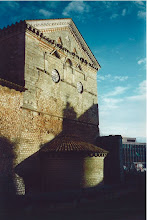Bahrain Elections - Censorship and Tension

Moderate Bahraini blogger Mahmood Al-Yousif had his website, Mahmood's Den blocked by the Ministry of Information and Ministry of State for Foreign Affairs. Also blocked by the same order was the Free Copts' website and a site called 'arabchurch' which appears to possibly be a sort of evangelical-style site (this from a very quick read of the opening page and some 'reading between the lines' - maybe 'ecumenical' is a better phrase?)
My translation of the order:
+ + + +
"Decision No. 61 of 2006 concerning the prohibition of 7 Electronic Sites from broadcasting in the Kingdom of Bahrain
Minister (Vizier) of Information and Minister (Vizier) of State for Foreign Affairs
After review of paragraphs 19 and 20 of Statute [or Act] Number 47 of 2002 concerning the regulation of journalists, printed matter and publishing
And on the basis of [lit. building on] the [request] of the Deputy Commissioner [or Undersecretary] for Printed Matter and Publishing
Resolved/Decided:
Paragraph 1
The following electronic sites are prohibited from broadcasting in the Kingdom of Bahrain due to publishing matters which the law does not allow [lit. guards/protects from being] to be published:
[List follows]
Paragraph 2
Deputy Commissioner [or Undersecretary] for Printed Matter and Publishing shall [enforce] this decision and disseminate it.
[signed]
Doctor Mohammed Abd Al-Guffar
[Minister of Information and Minister of State for Foreign Affairs]
+ + + +
Presumably the Christian sites are 'fomenting sectarianism' or otherwise insulting the Islamic religion [see discussion below about freedom on religion in Bahrain]. Perhaps that is because those sites have printed as well about the Bandar matter. As for Mahmood's site, presumably it is because he continues to write about Bandargate [see below], given that there was a previous order issued by a court prohibiting the press from publishing about the charges filed against him. At a deeper level, his "No Shi'i, No Sunni, Just Bahraini" grassroots campaign likely threatens a number of groups and appears to have a very popular following.

With elections now slated for November, things are dicey. The King is probably in a hard spot with folks mad about Bandar, the conservative Sunnis seeking a more autocratic rule, the conservative Shi'a seeking 'more democracy' probably only to topple the government and install a different sort of autocratic rule (my opinion), and the ordinary folk just wanting fundamental fairness in jobs, housing, food, etc., as usual, and being pawns in the whole affair. It will take some deft moves by the monarchy to keep the peace, I think, without strongarm tactics (which would likely prove disastrous).
Pray for the people of Bahrain, if you get a moment. Pray for our compatriots stationed there, that they do not get backlash from the situation. Pray for our Christian brethren living there that they also do not find themselves worse off in the end.
Pray also for Mahmood - he's taking a great deal of risk on himself as he continues to engage in civil disobedience, relying on Bahraini constitutional principles and international treaties on human rights regarding freedoms of expression.



